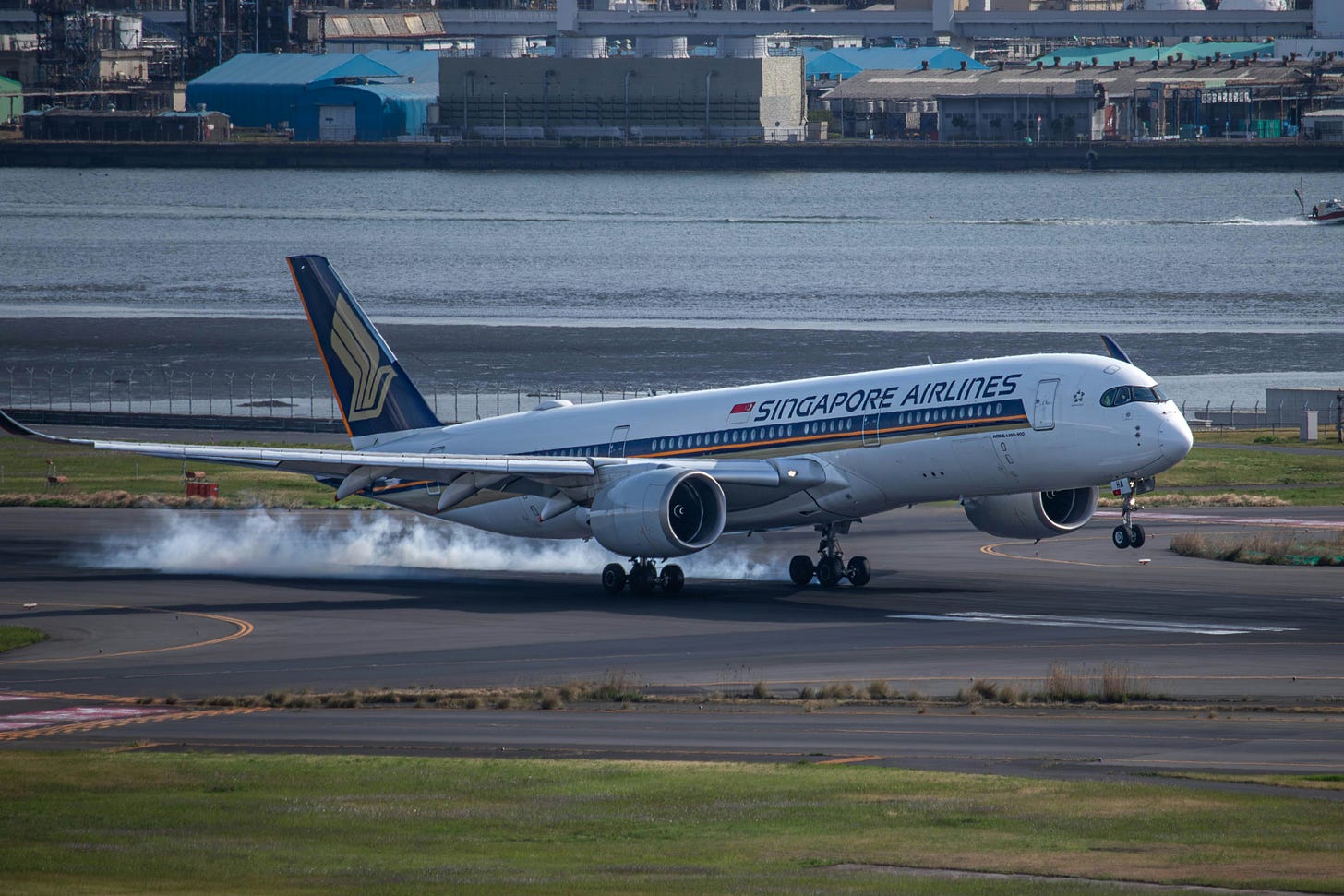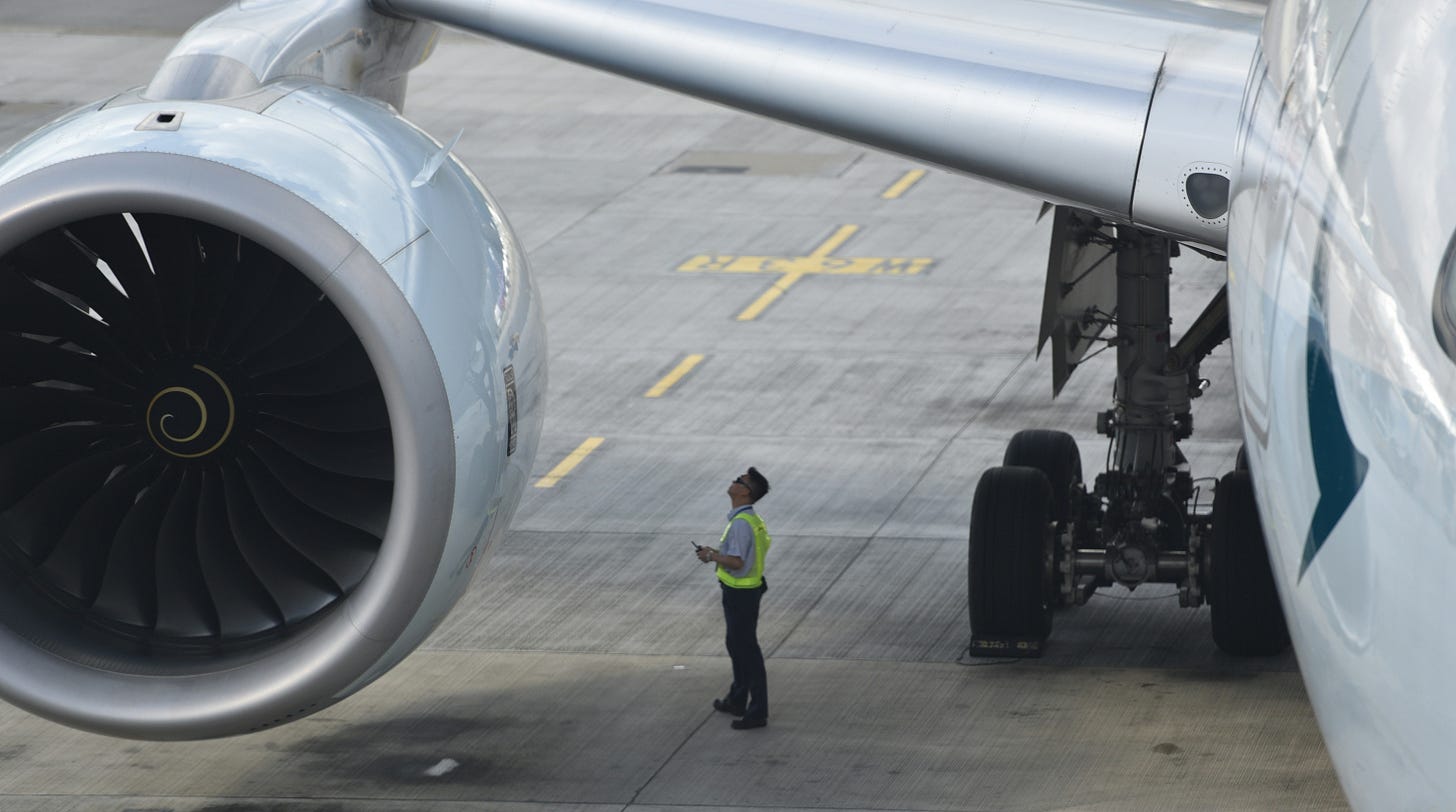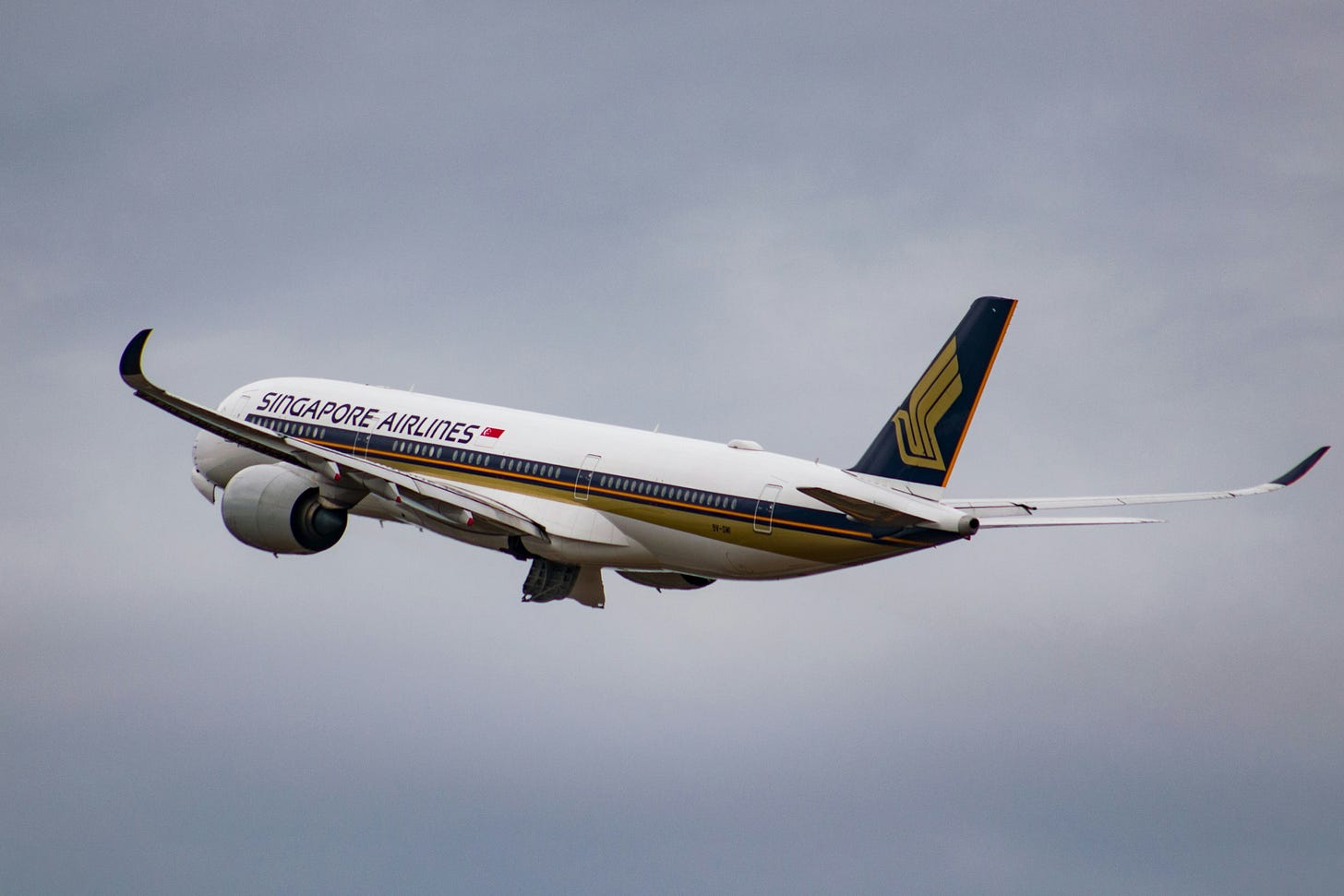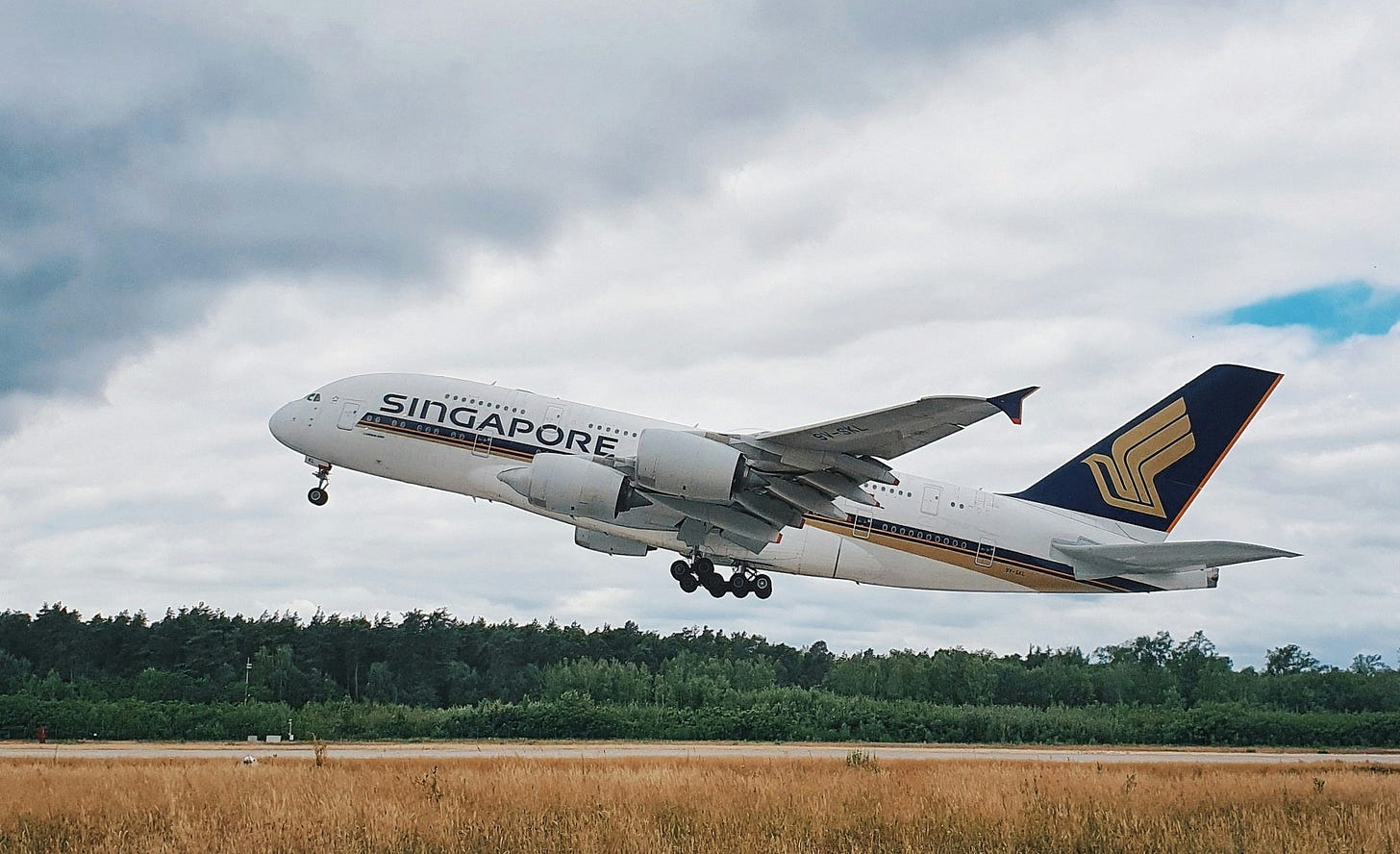29: Blockchain in Aviation
How blockchain technology and the tokenization of real assets can improve airlines.
240000Z FEB 25
Hello, and welcome to another issue of Flightlines!
In this issue, we explore how blockchain technology is being introduced in the aviation industry. While many still associate blockchain primarily with cryptocurrencies, forward-thinking airlines and aviation companies are finding practical applications for this technology that solve real operational challenges.

Our analysis this week looks at a few concrete examples where blockchain has already demonstrated measurable benefits in aviation, offering a view into how this technology might reshape the industry in the years ahead.
Airlines and Tokenization
The aviation industry, traditionally cautious about adopting early technologies, is discovering news applications for blockchain. Far from being a passing trend, blockchain technology is proving to be a powerful tool for solving longstanding challenges in air travel - from maintenance records to loyalty programs and aircraft financing.
Aircraft maintenance has long been burdened by paper-based processes and complex documentation requirements. Every part's history, from manufacture to installation and servicing, must be meticulously tracked. This traditional approach is not only time-consuming but also vulnerable to errors and fraud. Honeywell's blockchain solution addresses these challenges by creating an immutable digital record for every aircraft component and maintenance action.

What previously required days of manual verification can now be accomplished in seconds. The system's transparency and security have reportedly reduced incidents of fraudulent parts by 80%. This advancement in maintenance tracking does more than just save time, it enhances safety by ensuring part authenticity and maintenance compliance.
Airlines have historically struggled with loyalty program efficiency. Points often sit unused due to complexity and restrictions. Singapore Airlines tackled this challenge head-on by transforming their KrisFlyer miles into digital tokens on a blockchain platform. This simple shift in platform produced remarkable results. Passengers can now instantly redeem their points at partner merchants, eliminating some of the traditional friction in loyalty programs.

The impact has been significant—point utilization increased by 27% while partner merchant engagement rose by 35%. More importantly, this implementation shows how digital innovation can improve customer experience while boosting program participation. The success of Singapore Airlines' initiative can be a blueprint for other carriers looking to modernize their loyalty offerings.
Aircraft financing has traditionally been the domain of large institutional investors, with individual assets often requiring investments in the tens of millions of dollars. Blockchain-enabled asset tokenization is changing this. Example projects like the collaboration between Novus Aviation Capital and MANTRA are pioneering approaches that allow investors to purchase fractional ownership in aircraft through tokenization.
Instead of needing $50 million to invest in an aircraft, participants can now enter the market with as little as $50,000. This democratization of investment expanded the Novus investor base by 300% in just six months. Beyond these numbers, this shift represents a fundamental change in how aviation assets can be funded and traded, leading to more efficient capital investment across the industry.

Blockchain's impact on aviation extends beyond these examples. The technology's inherent characteristics—transparency, immutability, and decentralization—align well with the industry's needs for security, traceability, and efficiency. As more aviation companies embrace blockchain solutions, we're seeing innovations emerge across ticket distribution, payments management, supply chains, and passenger identity verification.
While implementation costs, regulatory compliance, and industry standardization remain hurdles, the demonstrated benefits in early applications suggest blockchain will play an increasingly important role in aviation's future.
Rather than viewing blockchain as a disruptive force, the aviation industry is learning to harness it as an enabling technology—one that can solve persistent challenges while creating new opportunities. As these solutions mature, they promise to make air travel more efficient, secure, and accessible for all involved. —✈
✈
Thank you for reading.
Flightlines will be back next week with more insights and updates from the world of commercial aviation.
Until then, safe travels and happy flying!



This was really helpful and illuminating to me (especially as one who is a classic 'late adapter' with technology). Thanks for the concrete examples!